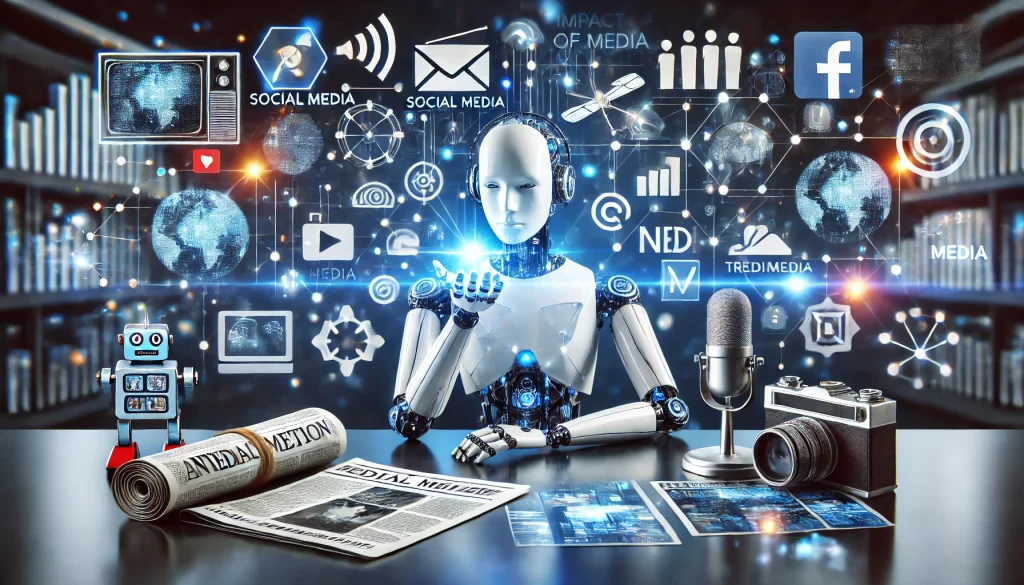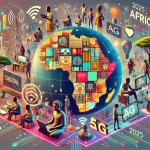In 2025, AI is reshaping the media landscape, blending innovation with challenges. This article explores five key areas: AI-generated content, personalized experiences, advertising, ethical concerns, and new media formats, showing AI’s dual role as an opportunity and a challenge.
Main Sections
- AI-Generated Content: Tools like Automated Insights create news and scripts, boosting efficiency but raising authenticity concerns. For example, many news outlets use AI for routine reports, freeing journalists for deeper stories, but transparency is key to trust.
- Personalized Content: AI tailors shows and articles to your tastes, enhancing engagement. Netflix and Spotify recommend based on habits, but it can create echo chambers, needing diversity to avoid polarization.
- AI in Advertising: AI optimizes ads for relevance, increasing effectiveness, but privacy issues grow. Google and Facebook use AI for real-time placements, yet regulations like GDPR demand data protection.
- Ethical Concerns: AI may replace jobs and spread misinformation, needing careful management. It automates tasks, creating new roles, but deepfakes and fake news require AI tools to combat, with ethics guiding use.
- New Media Formats: AI enables interactive stories and VR, offering fresh experiences. Dynamic narratives and 360-degree videos enhance engagement, opening new revenue streams, redefining media consumption.
AI’s impact on media in 2025 is profound, offering efficiency and innovation but posing ethical and privacy challenges. Balancing these requires embracing advancements while safeguarding trust and creativity, shaping media’s future.


